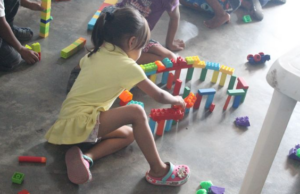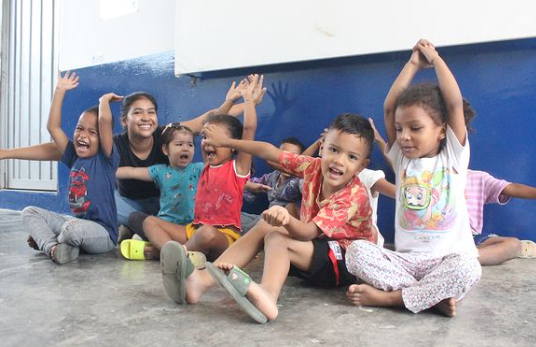Play is not just a form of entertainment for children; it is an essential tool for their holistic development. As children play, they not only have fun but also build the foundations for their physical, emotional, social, and cognitive growth.

Cognitive Development
Play stimulates children’s minds and fosters cognitive development. Through playful activities, children explore basic concepts such as numbers, letters, and shapes, and develop problem-solving skills. Additionally, games that require memory and attention, like puzzles, reinforce important cognitive skills and prepare children for academic learning.
Physical Development
Play also plays a crucial role in physical development. Activities such as running, jumping, and climbing help children develop their gross motor skills, while games that involve handling objects, such as painting or building with blocks, promote fine motor skills.
Social Development
Play is an excellent opportunity for children to develop social skills. By interacting with other children during play, they learn to share, take turns, and resolve conflicts. Group games teach children to work as a team and understand and respect others’ emotions and viewpoints.
Emotional Development
Play provides a safe space for children to express and manage their emotions. Through symbolic play, such as role-playing, children can explore different situations and feelings, allowing them to process complex experiences and emotions.
By allowing children to play freely and explore the world at their own pace, we are providing them with the tools they need to become balanced, creative, and confident individuals.
